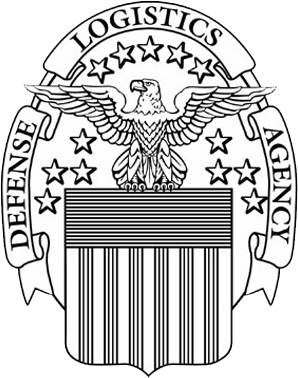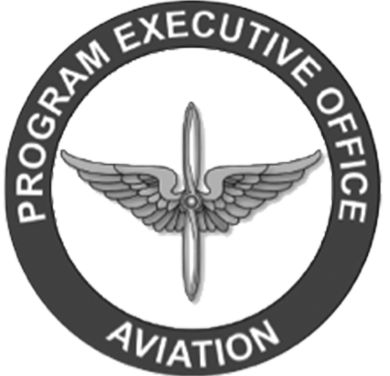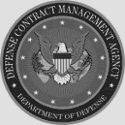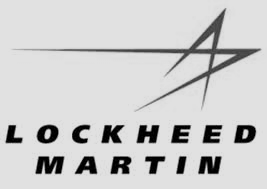We hope you all are staying safe and healthy during this COVID-19 lockdown! As our employees are considered Essential Workers and InterConnect Wiring is still open, we would like to continue our Spring Series highlighting your favorite articles from the past five years. Our top piece from 2015 was “Thirteen Reasons Why Companies are Reshoring Manufacturing to the United States of America”. This piece is extremely apropos at this time when many foreign countries have shut down businesses, including suppliers in the aerospace and defense industry.
The purpose of this eBook is to provide background regarding why offshoring was popular twenty years ago and reasons why companies are deciding to bring manufacturing work back to the United States of America (USA).
InterConnect Wiring is an aerospace manufacturing company located in Fort Worth, Texas. InterConnect specializes in assembling electrical products for aircraft including: (1) electrical wiring harnesses, (2) relay and power distribution panels, (3) cockpit panels, and (4) ground support equipment. Unfortunately for InterConnect, manufacturing of these types of aerospace products is one of the most widely selected types to send to other nations (i.e. offshoring). The purpose of this eBook to provide background regarding why offshoring was so popular twenty years ago and reasons why companies are deciding to bring manufacturing work back to the United States of America (USA). Bringing manufacturing back to the USA is commonly called reshoring.
One of the main reasons why InterConnect was started was because of an offshoring decision. InterConnect has been in business now for many years. In 1993, when InterConnect was founded, General Dynamics (now Lockheed Martin) decided to offshore the assembly of F-16 electrical wiring harnesses. A company named Aerotec was setup in Chihuahua, Mexico to do this work. At that time there were over 200 employees at General Dynamics (GD) who assembled electrical wiring harnesses for the F-16 fighter aircraft. Over a few months, these 200 employees were laid off. General Dynamics established a long-term contract with Aerotec to do this work in support of
the F-16. Like any startup there were many problems; therefore, thinking that Aerotec might not succeed, InterConnect was incorporated in Fort Worth, Texas. It was anticipated that InterConnect could immediately hire the recently let go 200 employees; most of which had over 15 years’ experience making F-16 wiring harnesses. Additionally, InterConnect could make F-16 wiring harnesses much cheaper than General Dynamics because of the differences in overhead rates. Aerotec, however, did succeed and to this day continue to assemble F-16 wiring harnesses although the company is no longer known as Aerotec.
About twenty years ago, offshoring manufacturing jobs was common throughout the United States. The main reason was to reduce cost by taking advantage of lower pay wages in other countries such as Mexico, China, and Vietnam. Back in the early 1990’s, an aerospace worker manufacturing electrical product in the USA was making around
$15 per hour. In other countries, the same type position was being paid less than $1.00 per hour. At the height of offshoring manufacturing jobs, the USA was losing over
100,000 jobs per year. That trend has slowed and now stopped. In fact, the USA is now gaining over 10,000 jobs per year by reshoring manufacturing jobs. American manufacturing has seen a steady gain in jobs since hitting a low of 11.453 million in February 2010; however, millions of more jobs will have to be added to return to job levels of just 10 years ago. According to the US Bureau of Labor Statistics, USA manufacturing employment in May 2015 was 12.335 million, up from 12.154 million in May 2014, but below the 14.256 million in May 2005 and well below the 17.279 million in May 2000. There are still as many as 4 million manufacturing jobs offshore, but the trend now is reshoring.
So, with this background information, what is the reason that companies are reshoring manufacturing jobs? Find out next the thirteens reasons that USA companies are reshoring manufacturing jobs.
Reason Number 1: Rising Wages
Wages have been rising steadily over the past 20 years for developing countries such as Mexico and China. They are no longer such a bargain as they once were; now the wrap rate (labor cost + overhead cost + profit) has more than doubled what they were 20 years ago. Wages in the USA have been stagnant for many years now. In fact, many companies’ costs have decreased in the United States.
Reason Number 2: Higher Freight Costs
No matter what product is built overseas it must be shipped back to the USA for installation or distribution. Shipping costs have been increasing steadily over the past 20 years. In many cases, component parts used in assembly originate from the USA and are then shipped overseas thus causing two shipments of (a) component parts and (b) the finished goods. When the price of oil was very high, shipping cost skyrocketed making offshore manufacturing much more expensive.
Reason Number 3: Energy Costs
Energy cost in the USA is much lower (and more dependable) than many other countries in the world. If you want to get an idea on how much the difference is, try traveling to a foreign country and find out how much a gallon (or liter) of gas costs. Many manufacturing companies overseas must pay higher energy costs essentially canceling out the lower direct labor rate savings.
Reason Number 4: Maintaining an Offshore Manufacturing Facility
When General Dynamics established Aerotec, there were substantial costs including: (a) set up a new company legally, (b) purchase a facility, equipment and machinery, and (c) train a workforce. Even after offshore manufacturing is established there is cost to the company that offshored the work to maintain the performance of the offshore facility. These costs include: (a) repeated travel to and from the manufacturing facility, (b) supply chain management of the facility, (c) problem-solving issues that arise, and (d) communication barriers.
Reason Number 5: Skilled Workforce
The United States is one of the most technically advanced countries in the world. Along with technical advances, the US has highly skilled workers, many of whom have worked at jobs where above average technical skills are required. Additionally, the USA workforce is better educated than many other countries in the world. Finally, the United States’ population is large and has fantastic cities across the country that can support an advanced manufacturing environment. When a new manufacturing facility is built just about anywhere in the USA, the employees in that city are able to be trained to do the work required at that new facility.
Reason Number 6: Communication
After speaking with many buyers, engineers, program managers, and other managers who have worked with companies outside the US, there are always common frustrations. The frustrations originate from many reasons including: (1) time zone differences, (2) language barriers, (3) currency differences, (4) laws of the other nation especially in employee relations, (5) cultural differences in behavior and actions, (6) holidays and time off, (7) very late or early morning meetings and phone calls, (7) writing skills, and (8) negotiations. As many USA companies have found out, outsourcing manufacturing jobs can be challenging and costly when it comes to day to day activities.
Reason Number 7: Longer Lead Times
When manufacturing jobs are offshored, there is inevitable increase in lead times from the time a product is made to the time it arrives back into the USA. Unless airfreight is used (which is an expensive delivery method) goods take at least a week to arrive. If a part needs to be expedited, it will take many days. When manufacturing is offshored, there must be more supply chain monitoring and the supply chain becomes more complex. Contingency plans for supply chain disruptions must be made, and due to longer lead times, there are lower inventory turns as a result.
Reason Number 8: Patriotism: Made in the USA Label
The USA is a very patriotic country. Unlike many countries, no matter what state you live in, citizens are typically prouder of the USA than their own state. People move around the nation all the time, and their love for the US does not change. Many countries are divided into regions. There are many differences between those groups of people and arguing and fighting are common. Instead of being patriotic to their country, they are patriotic to their region. This is not true in the United States; Americans are proud of their country. Americans like to see products that say, “Made in the USA”. Likewise, most United States companies like to see “Made in the USA” on their products. There are many United States companies that that are reshoring manufacturing jobs. Walmart made a commitment in 2014, to purchase over $50B in merchandise over the next ten years from USA manufacturing companies. Over the past few years, General Electric, Caterpillar, Ford, and General Motors have brought back thousands of jobs. Many other companies (both big and small) are doing the same. “Made in the USA” is pride in our country. As a side note, InterConnect places a “Made in the USA” label on all our product boxes.
Reason Number 9: Higher Productivity and Automation
Design engineers know that nothing can take the place of going to the manufacturing floor and seeing how products are being made. When manufacturing is offshored, the design engineers are typically thousands of miles away from the manufacturing facility. When manufacturing is next to or close by engineering, companies can more efficiently improve design, eliminate waste, improve quality and increase productivity. There is an ongoing culture of trying to figure out ways to make it better and faster. When engineering and manufacturing are far away from one another, the engineers must get on airplanes and fly to the manufacturing site. Not only is this expensive and
time-consuming but it does not support improved quality and productivity. Many times, there are only a few engineers sent overseas and they don’t spend weeks or months at the manufacturing facility to improve productivity. Finally, with an everchanging world where there are constant fluctuations in customer needs, it takes more time for design changes to be implemented when the design engineers are far from the manufacturing facility.
Reason Number 10: Better Technology in Innovation
Innovation is a function of trial and error. Innovation speeds-up when there is the ability for more trials. We learn from our mistakes and improve based on what we learn. It is very difficult to get any design right on the first attempt. Manufacturing improvements likewise take much thought and many attempts. When design engineers are far away from a manufacturing location, there are delays in innovation. Innovation slows down when a person cannot easily see the effects of the design changes. When design engineering and manufacturing are far apart, improvement slows down considerably. At InterConnect, we always have a Process Kaizen running to study and improve our manufacturing processes. InterConnect is never satisfied in our processes. We are always studying ways to improve them.
Reason Number 11: Quality and Rework
Just about every manufacturing company now says that their quality is very high. Many companies who have offshored manufacturing have learned that the quality overseas is not as good as it was in the USA prior to offshoring. Most of the reasons for this reduction in quality were discussed in the previous two reasons: (a) Higher Productivity and Automation and (b) Better Technology in Innovation. One other factor to be considered is rework of products. When products are made overseas then discovered in the USA to be non-conforming, it is costly and time-consuming to ship the products back to the overseas manufacturing location, rework it there, and then return it back to the USA.
Reason Number 12: Government and International Incentives
Unlike twenty years ago, there are many more government incentives (local, state, and federal) that are offered to companies to persuade them to build a manufacturing plant in a particular city. Tax abatement is the most common method. Even within the USA, there is fierce competition between cities to win manufacturing business. Additionally, there are incentives for international companies to have a manufacturing presence in the USA. One such example is Airbus building a final assembly plant in Mobile, Alabama.
Reason Number 13: Intellectual Property
When USA manufacturing jobs are offshored, there are concerns about intellectual property both for the design of products and the methods that are used to manufacture them. Even though Proprietary Information Agreements (PIA’s) or Non-Disclosure Agreements (NDA’s) are established early in the offshore process, international companies sometimes use this information for future products and manufacturing processes that break these agreements. Additionally, after many years of making products offshore, PIA’s or NDA’s are sometimes forgotten by the manufacturing company.
There are probably many more reasons to reshore manufacturing work back to the USA. The purpose of this eBook was to provide some of the most common reasons. It will be interesting over the next few years to see if the trend continues to reshore more than
10,000 jobs a year back to the USA as opposed to offshoring them. It takes a large upfront investment to return manufacturing jobs back to the United States but as many companies have discovered, the benefits highly outweigh the cost.




























